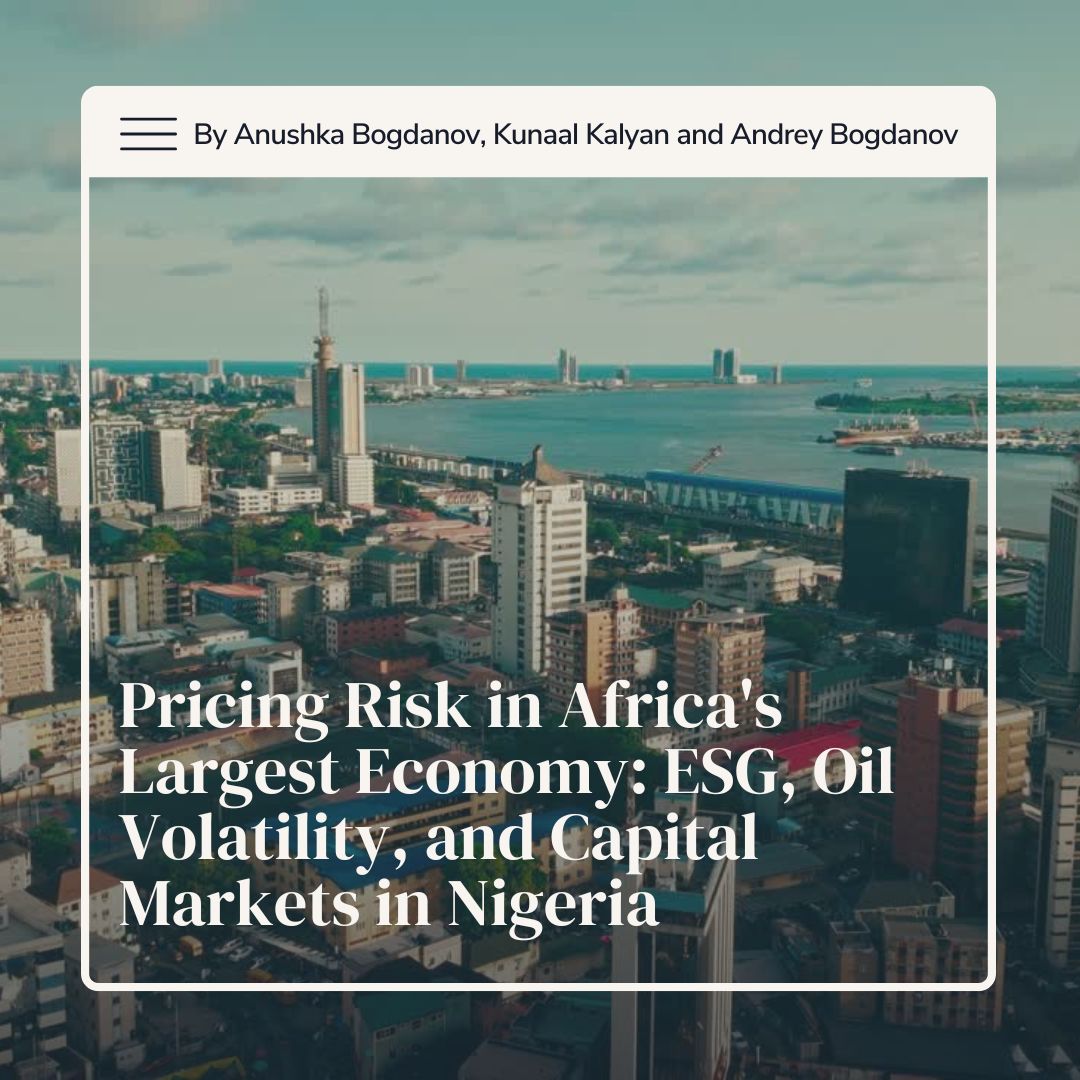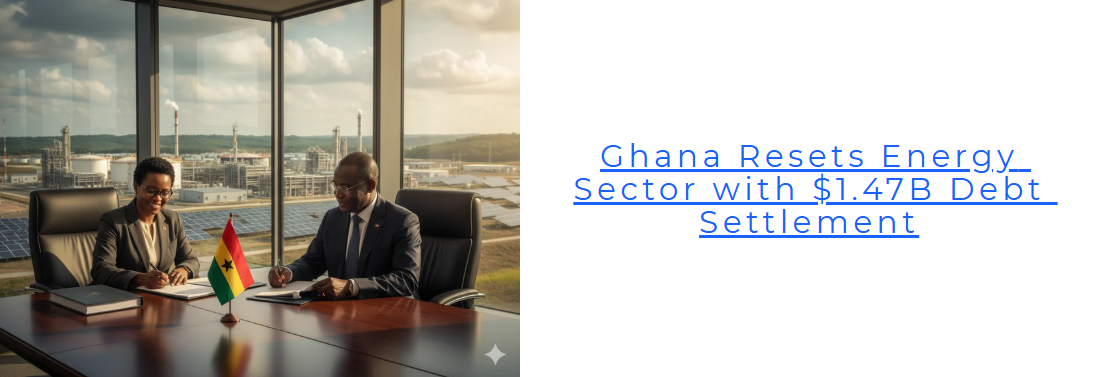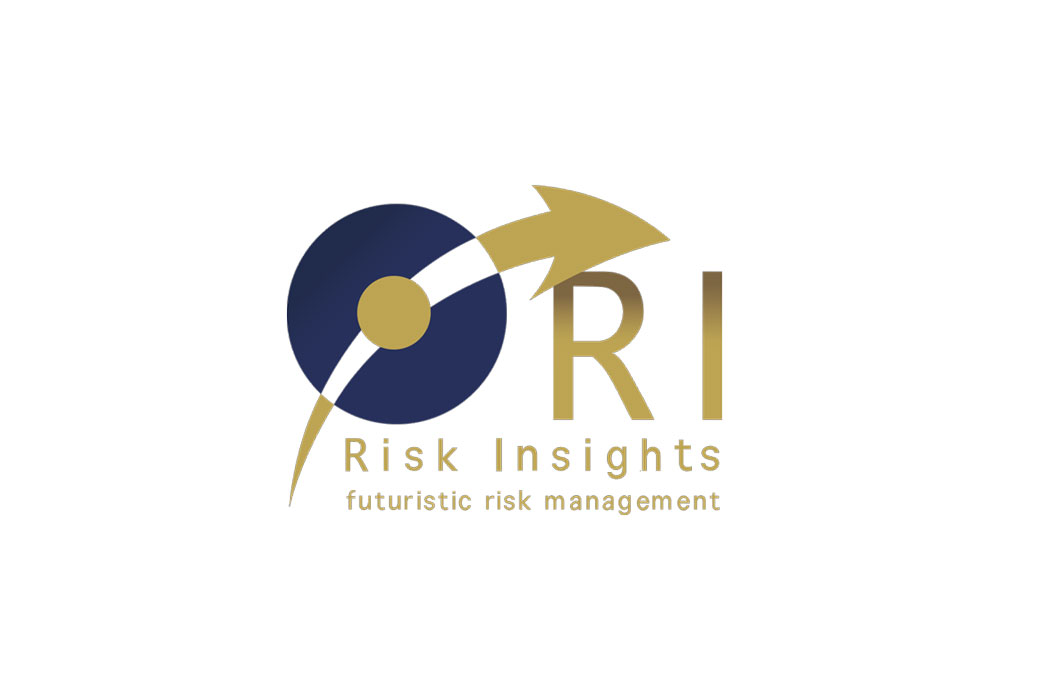Risk Insights ESG GPS Sustainable Newsletter

DEAR VALUED STAKEHOLDER,
Welcome to the latest edition of the Risk Insights Newsletter!
January sets the tone for the year ahead.
As global markets navigate tightening capital, regulatory acceleration, and growing climate and geopolitical risk, the need for clear, decision-useful insight has never been greater.
At Risk Insights, we begin 2026 focused on cutting through complexity, translating ESG, climate, and governance data into practical intelligence that supports resilience, credibility, and long-term value creation.
This month’s newsletter shares key perspectives from our latest research across African and emerging markets, offering grounded insights for boards, executives, and investors navigating an increasingly uncertain landscape.

PRICING RISK IN AFRICA'S LARGEST ECONOMY

In our latest thought-leadership piece, Pricing Risk in Africa’s Largest Economy, we examine how ESG dynamics, oil price volatility, and capital market behaviour intersect in Nigeria—Africa’s most complex and systemically important economy.
The analysis shows that risk in Nigeria is no longer priced through oil alone. Exchange-rate instability, fiscal stress, governance credibility, and uneven ESG disclosure increasingly shape investor perception, cost of capital, and market volatility. Using an ESG-informed lens, the article highlights why traditional macro models fall short—and why forward-looking risk pricing must integrate environmental exposure, social fragility, and institutional strength.
Read on SSRN Here
Read on Medium Here
RETHINKING POWER: WHY PEACE REQUIRES WOMEN AT THE CENTRE

In this powerful episode of ESG Matters with Risk Insights, host Anushka Bogdanov reframes global leadership by placing women’s voices and experiences at the centre of peacebuilding and systemic transformation. The conversation — captured in the YouTube video Women, Power & the Architecture of Peace — challenges conventional frameworks and highlights how inclusive leadership is foundational to achieving sustainable peace and equitable progress.
Bogdanov’s thought leadership underscores a critical insight: peace is not merely the absence of conflict, but the active architecture of systems that enable dignity, agency, and participation for all, especially those historically marginalized. By examining the intersections of gender equity, power structures, and global governance, the episode invites us to think bigger about what leadership looks like in times of disruption.
Key takeaways for business leaders and changemakers include:
-
Leadership reimagined: True leadership extends beyond titles — it is about how influence is used to shape environments where diverse perspectives contribute to collective harmony.
-
Women at the forefront: Women’s inclusion in leadership isn’t just a social good — it’s strategic. Diverse leadership drives more resilient, adaptive, and peaceful systems.
-
Peace as a design challenge: Peacebuilding requires intentional frameworks — not simply crisis management. It involves designing institutions and norms that uphold justice, collaboration, and mutual respect.
Listen on YouTube here
Listen on Spotify here
RAEX SUSTAINABILITY WEBINAR
Risk Insights will participate in RAEX Sustainability Webinar №208: ESG in Africa – Risks and Opportunities, following the partnership agreement signed between RAEX and Risk Insights in December.
The session will explore ESG risk assessment in developing and African economies, global sustainability trends, and the role of artificial intelligence in ESG ratings. The discussion forms part of RAEX’s international webinar series with leading ESG ratings agencies from China, India, and Africa.
The webinar takes place on 11 February 2026 at 14:00 (Moscow time).
Register here


As carbon regulation, disclosure requirements, and market mechanisms continue to evolve, organisations are increasingly expected to move beyond awareness toward practical carbon execution.
In response, Risk Insights, in partnership with Frontière Advisory, will host a Carbon Training Program on 9–10 April 2026, designed to equip professionals with the core strategic, regulatory, and financial insights needed to navigate carbon accounting, carbon markets, and corporate carbon strategy.
Structured around four integrated modules, the programme takes participants from climate and carbon fundamentals through to the mechanics of carbon markets, carbon credit trading, and corporate carbon strategy and offsetting.
Delivered online by experienced carbon and ESG practitioners, the programme is designed for professionals across finance, risk, sustainability, and strategy functions who are seeking to build credible internal carbon capability.
📅 Dates: 9–10 April 2026
📍 Format: Online
💼 Fee: ZAR 5,999 per delegate
Register here:









